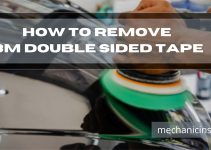How often do you wash your vehicle? Some of you might say once in a week or once in a month. You might wash the exterior part on a regular basis. But how much do you prioritize cleansing the interior?
I bet most of you are not as concerned about the interior as you are about the exterior.
Washing your vehicle on a regular basis gives you an extra edge. It saves your maintenance or repairing cost, improves the condition and safety, protects from severe damage.
You just need to invest a bit on your car regularly for washing and thus you save extra money and can avoid serious damage issues.
CARB CLEANER VS BRAKE CLEANER
Today we’re going to discuss about carburetor cleaner and brake cleaner. We will try to make a thorough comparison between them.
Two of the most used cleaning solution in the market are carb cleaner and brake cleaner. As mentioned in their name they are manufactured for a particular component.
But they can be used for different purposes too! That’s why these two cleaners are more popular.
Let’s see the comparison in the below table.
Carb Cleaner | Brake Cleaner |
Carb cleaner is mainly manufactured for cleaner carbon deposits from carburetors. | Brake cleaner is manufactured for cleansing brake fluid, grease, oil, and hardened deposits. |
The ingredients in carb cleaners are Acetone, Methyl Ethyl Ketone, Toluene, 2-Buxtoethnol, Xylene, Propane and Ethylene Benzene. | Organochlorides like tetrachloroethylene and dichloromethane are there in a Chlorinated brake cleaner. Non-chlorinated brake cleaner is mainly comprised of heptane, acetone, and carbon dioxide. |
Carb cleaner is not less aggressive. | Brake cleaner is more aggressive than carb cleaner |
Carb cleaner need not be oil-free. It leaves oily residue which allows the engine to function better. | On the other hand, brake cleaners must be oil-free. If it leaves a slight oily residue on the brake system, it can cause serious problems |
Carb cleaner cannot be used on brake systems as it is not oil-free. Whereas any cleaner for brake system should be oil-free. | Brake cleaner can be used for carburetors in limited instances. It can remove grease, hardened debris like carb cleaner. |
Carb cleaner will turn the process into goo if you are wearing nitrile gloves. | You need to put on gloves while using brake cleaner and it works perfectly while wearing gloves. |
Carb Cleaner
Carb cleaner is a chemical additive predominantly used for cleaning carbon debris from Carburetors.
Carburetor, Carb in the UK or North American English, is a device that mixes air and fuel for internal combustion engines. It carburets (mixing air and fuel) in an appropriate ratio.
The carburetor is responsible for supplying fuel/air mixture to the engine.
From the early 1900s to the 1980s carburetor was used in car engines. The fuel injection system replaced the carburetor.
But still, there are other vehicles/machines where the carburetor is used namely airplanes, generators, tractors, lawn and garden equipment, and motorcycles.
However, as carburetor is responsible for supplying fuel/air mixture
It can build excessive carbon deposits. Which can cause an imbalance in the air-fuel ratio. For ensuring the smooth supply of air-fuel you need to cleanse the carburetor after a certain time with carb cleaner.
Let’s describe the features of carb cleaners.
Effective Ingredients
When you are willing to buy a product it is better to know about the ingredients of that particular product.
The ingredients in carb cleaners are Acetone, Xylene, Methyl Ethyl Ketone, Propane, Toluene, 2-Buxtoethnol, and Ethylene Benzene.
Proper air-fuel ratio
Carburetor supplies air-fuel mixture to the engine. If the carburetor builds carbon debris in it, the ratio of air-fuel gets imbalanced. Which eventually causes less fuel efficiency.
When you clean carburetor with carb cleaners it removes carbon deposits and allows it to supply air-fuel mixture in a correct ratio.
Increased engine performance
As we know engine runs on fuel supplied by the carburetor. When an engine gets an air-fuel mixture in a perfect ratio, it works better. Which eventually allows the vehicle/machine to run smoothly.
Versatile Cleaner
Carb cleaners are manufactured for removing carbon debris from carburetors as stated earlier. But it can be used for other parts too! This means it can be used for multi-purpose.
If you study a bit about carb cleaners, you get to know that most of the carb cleaners on the market can be used to clean various components.
So purchasing one product you will be able to use for multi-purpose.
Easy Application
For removing carbon debris from the carburetor you need to disassemble it. You can clean it without dissembling the carburetor. You just need to remove the air cleaner unit.
N.B: Don’t use the brake cleaner on any hot metal component, rubber, plastic, or painted surface.
Brake Cleaner
Brake cleaner is mainly manufactured for cleaning brake disks. But it can be used also for cleaning the engine compartment and underfloor of a motor vehicle.
There are two types of brake cleaner in the market, Chlorinated which is non-flammable, and non-chlorinated which is flammable.
Chlorinated brake cleaner contains organochlorides like tetrachloroethylene and dichloromethane.
It is more effective than the non-chlorinated one. The chlorine atoms increase the effectiveness of its chemical.
It cleans fast, dries quickly, and leaves no residue. It is non-flammable, still, it is toxic.
Non Chlorinated brake cleaner is mainly comprised of hydrogen. As mentioned in the name it doesn’t contain chlorinated solvents.
It takes longer to dry than the chlorinated cleaner.
As ingredients in this product are highly flammable so one must take precautions before using it.
None of the brake cleaners is environment friendly.
Some significant features of brake cleaner are-
Highly Effective
Brake cleaners are mainly applied for cleaning metallic parts or surfaces. Oils, fats, or grease prevent the brake system of the car to work properly. Brake cleaner effectively removes brake fluid, grease, oil, and hardened deposits which allows the brake system to perform properly.
Leaves no residue
Brake cleaners are capable of removing all types of grease, brake fluid, oil, etc.
Because a slight amount of greasy or oily residue can cause great problems. Quality brake cleaners cleanse out everything. It leaves nothing on the surface and dries the surface quickly.
Additional Features
- Reduces disc-brake squeal and clutch chatter
- Saves time and reduces maintenance costs
- Can be used without disassembly
- Degreases instantly
- Evaporates quickly
- 360-degree spray system means you can spray from all angles, even upside down.
N.B: Avoid spraying on the area below the throttle plate, engine while it is running also in the brake part.
Final Words
Which product you use for different parts of your vehicle is a significant issue. You cannot or shouldn’t use the same product to clean several parts of your car.
There are different products to clean different components. Some of them are used for general purposes and some of them are for a particular component. Sometimes using the same product for different components can cause severe damage issues.
So, we recommend you purchase the right cleaner for a particular component.
FAQ
Is it safe to use brake cleaner on an engine?
Yes, you can use brake cleaner on the engine. The brake cleaner additive was manufactured for removing brake fluid, grease, oil, and hardened deposits. So you can apply the brake cleaner to cleanse the oil of the engine.
Can you use brake cleaner on brake pads?
Yes, you can use brake cleaner on brake pads. You can further use it on brake linings, cylinders, drums brake shoes, discs, clutch discs, etc.
Can you clean the carburetor without removing it?
You don’t need to disassemble the carburetor for cleaning. Open the air intake cleaner and then spray the carb cleaner in the carburetor.
Will brake cleaner remove oil?
Absolutely yes. Brake cleaner is a pretty aggressive additive than the other ones. It was manufactured for cleansing everything from the brake system. Brake cleaner effectively removes brake fluid, grease, oil, and hardened deposits. It leaves no residue.
WILL BRAKE CLEANER DAMAGE PAINT?
Yes, some brake cleaner damage paint. Brake cleaner is comprised of acetone, methyl chloride, and other compounds which are quite harmful to paints. There are some brake cleaners which don’t damage the paint. But we prefer you to keep away the cleaner from paint areas.
Do Modern cars use carburetors?
At present most cars don’t use carburetors. They use a direct fuel injection system instead of carburetors and directly inject the air-fuel mixture into the cylinders. But still, you find some cars which use carburetors for supplying air-fuel mixture to the engine.
Which vehicles/machines use carburetors except for cars?
airplanes, generators, tractors, lawn and garden equipment, and motorcycles have a carburetor. Many small engines still use carburetors as it is much easier to control the supply of air-fuel mixture than the direct fuel injection system.
How will I know that my carburetor needs cleaning?
Well, there are some signs or symptoms which refer that your carburetor has built excessive carbon deposits.
Signs of your carburetor needs cleaning –
the engine isn’t starting, the air-fuel mixture isn’t supplied in a proper ratio, fuel overflowed the carburetor.



